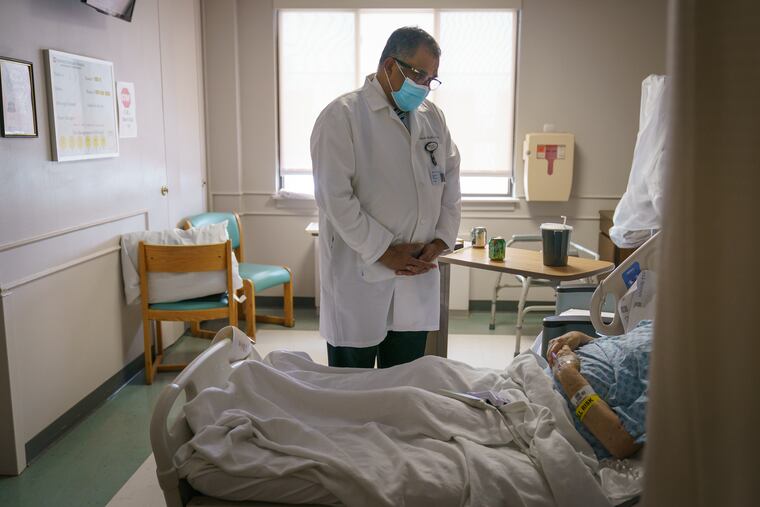Most hospitalized COVID-19 patients develop neurological symptoms, Pitt-led global study finds
The study adds to mounting evidence that the brain and spinal cord are vulnerable to attack by the novel coronavirus, as are the lungs, heart, circulatory system, liver, pancreas and kidneys.

Fourteen months ago, as Sherry H.-Y. Chou geared up for grueling hours caring for COVID-19 patients, she knew that collecting data on central nervous system complications would be important.
“Neurological symptoms aren’t the first thing people think about in a pandemic caused by a respiratory virus,” said Chou, a neurologist and critical care specialist at the University of Pittsburgh Medical Center. “When I proposed the study in March, I thought only a small number of centers would participate. To my great surprise, the enthusiasm was enormous.”
Her proposal grew into a global study of the incidence and severity of neurological problems among hospitalized COVID-19 patients. On Tuesday, the research consortium published the initial disturbing findings in JAMA Network Open: Eight out of 10 hospitalized patients developed at least one neurological side effect, ranging from headache to delirium to stroke and coma. Even seemingly harmless neurological symptoms such as loss of the sense of smell or taste were linked to a sixfold higher risk of death.
“That is a lot,” Chou said. “I don’t want to say it surprised me, but it does concern me. This paper is important because neurological symptoms are actually common. They may have an impact on patients’ overall survival, so it’s important to pick it up early.”
The study adds to mounting evidence that the brain and spinal cord are vulnerable to attack by the novel coronavirus, as are the lungs, heart, circulatory system, liver, pancreas, and kidneys. A study published last month in Lancet Psychiatry found that within six months of being diagnosed with COVID-19, a third of patients were diagnosed with a neurological or psychiatric condition such as anxiety or mood disorders. Severe neurological conditions, including stroke and dementia, were rare overall but were diagnosed in 46% of patients who had received intensive care.
» READ MORE: Organ by organ, see how the coronavirus can attack the body
Mathew Mathew, chief medical officer at Suburban Hospital in Norristown, can empathize. In April 2020, before Suburban had protective protocols in place, the 65-year-old physician contracted COVID-19 and spent five days there as a patient. Fortunately, he did not need mechanical ventilation, even though his diabetes and high blood pressure put him at risk.
After he recovered, fatigue, memory loss, and anxiety lingered through the summer.
“It’s slowly getting better,” he said recently. “My memory is almost normal.”
Now, he counsels COVID-19 patients, especially those who need mechanical ventilation in intensive care, that recovery may be a long, arduous, emotional process.
“I see a lot of patients with 40 or 50 days in intensive care. On top of COVID-19, they have ICU psychosis,” he said, referring to the delirium and agitation associated with heavy sedation and immobility. “They’re going through a lot of struggles” after they go home.
The global study published this week involved two groups of COVID-19 patients who were admitted to 133 hospitals in 13 countries between March and October of last year.
» READ MORE: FDA authorizes Pfizer coronavirus vaccine for adolescents 12 to 15 years old
In the biggest group, made up of 3,055 patients with or without neurological symptoms upon admission, 2,439 (80%) developed at least one such symptom. In most cases, the patients themselves complained of the symptoms, commonly headaches, loss of taste or smell, or fainting. But more than half of the cases involved serious problems — such as stroke, delirium, seizures, brain swelling — that physicians diagnosed while providing care.
In the second group, such serious conditions were somewhat more common because all 698 cases were from a European registry of patients with confirmed neurological diagnoses.
“Even if the pandemic is completely eradicated, we are still talking about millions of survivors who need our help,” said Chou at Pitt. “It is important to find out what symptoms and health problems those patients are facing, and there is still plenty of work for years to come.”